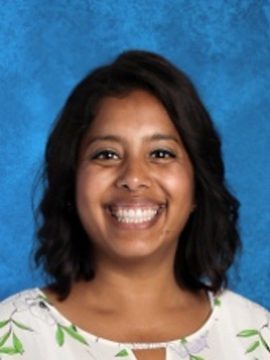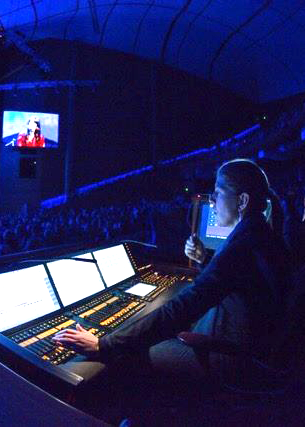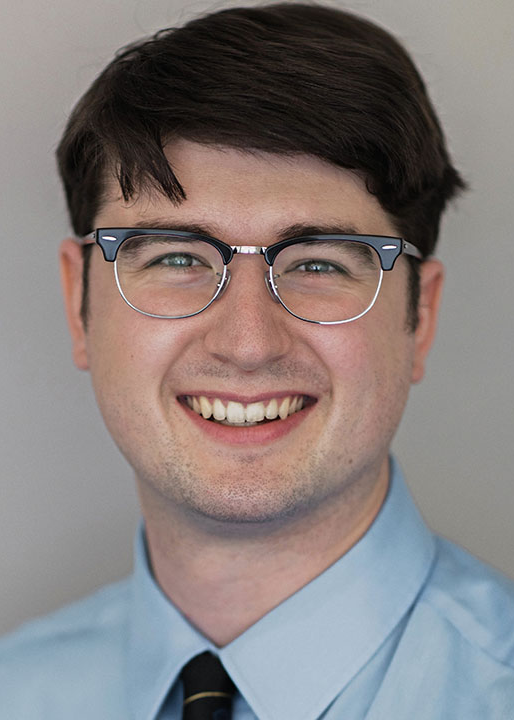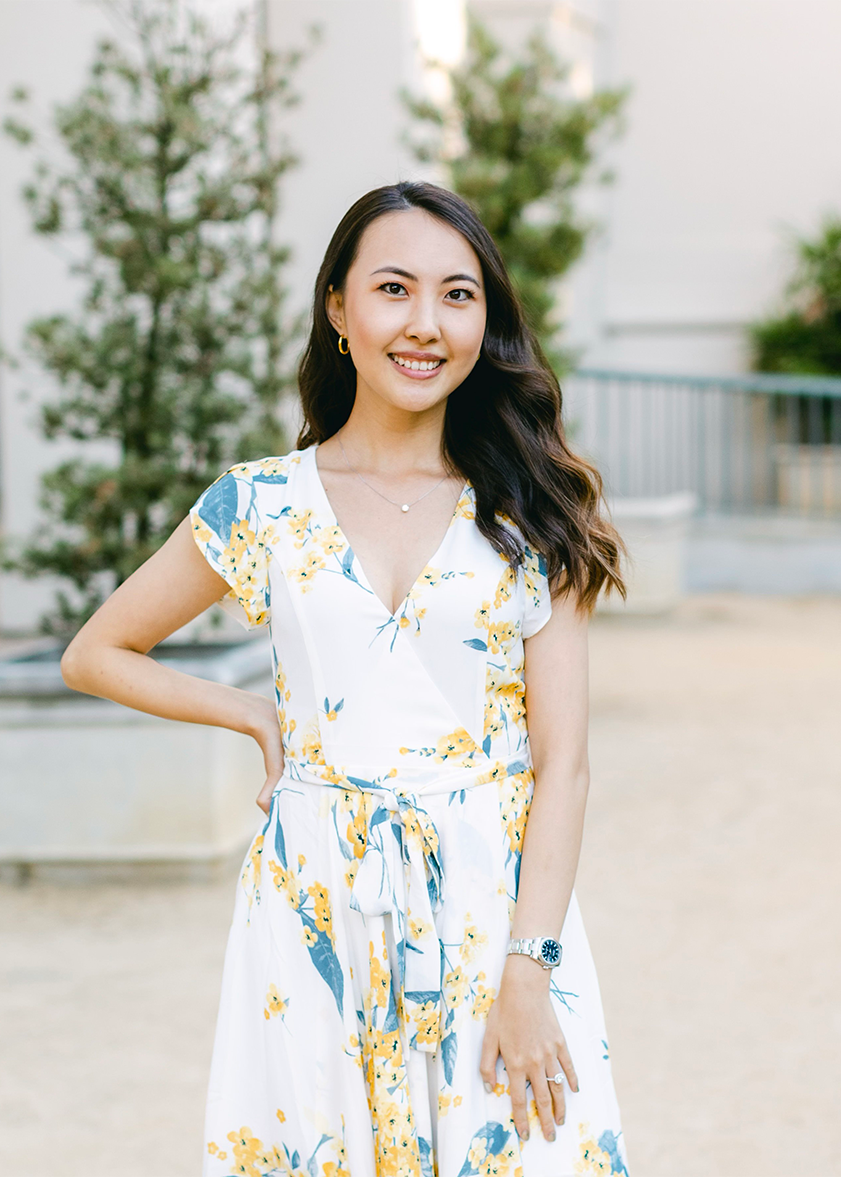Joanna Biddlecombe

Why did you choose your program at UBC and what did you enjoy most about it?
I always knew I wanted to be a teacher. I really enjoyed my history degree at UBC. I especially liked the smaller classes as I got into 3rd and 4th year. The professors were always so passionate about the class they were teaching which made me learn even more.
My ED program at UBC was also pretty amazing, and I made some lifelong connections there.
What choices did you make at UBC that contributed to your career success / journey?
When I got into UBC, I was in 3rd year and had missed out on some of the opportunities to build community. I chose to connect with the Tri-mentoring program, as well as become a MUG (My Undergraduate Group) leader. Those helped me feel part of the larger community since I commuted in and did not live on campus. Both those programs made me feel a connection to UBC and the community which is something I treasure.
After I graduated with my degree in History, I applied to the Faculty of Education, which turned out to be the best decision I ever made. I knew I wanted to be a teacher ever since I started working with young people at the age of 14. I started volunteering with parks and rec summer programs and I knew I connected well with kids. I went back and forth between social work and counselling, and finally, I decided on teaching because I wanted to make a difference in a child’s life before they needed interventions.
I applied to the CITE program (Community of Inquiry into Teacher Education) in the education faculty. I loved working with technology and have an inquiry-based philosophy, so entering into an inquiry-based program with a focus on technology was a natural decision for me. After that, it opened up so many opportunities for me, especially being able to find a job overseas with my new teaching degree from UBC.
What was your first job after graduation and what other jobs did you have before your current position?
My first job after graduating with my Education degree was teaching Grade 4 overseas in Cairo at BCCIS. I received an email, which went out to all of the Education students, asking us to apply, and a few of us did. It was the best decision I made, and I spent two years teaching in Cairo.
Teaching BC content material in a country that has no connection to Canada or BC was challenging. It meant I had to do double the amount of work to connect the students to what they were learning. Science and social studies content was all about BC and Canada, and I had to research and find connections to my Egyptian students’ lives and my life in BC. I learned so much, and it made me connect to my students a lot more, and vice versa because they knew that I wanted to learn about their culture as well.
Integrating into a foreign culture was challenging at first for many reasons. I had to be careful about where I went alone and who I connected with. For the first few months we stayed close to home in our expat community, and slowly started venturing out once we met locals who we could trust. That made my time in Cairo much more fruitful̶ meeting local Egyptian families who opened their home and life to me. I knew I wanted to travel, and this opportunity gave me the ability not only to see Egypt but travel to other parts of Africa, Europe and India. I was able to work, make money, gain experience as an educator, as well as travel and experience different cultures. I would genuinely recommend anyone finishing their degree to travel and work away from Canada if you can, so that when you do come home and want to settle down, you have such a better appreciation for all that we take for granted here.
Is your current career path as you originally intended? What challenges did you face in launching your career?
Yes it is. Honestly, the biggest challenge was finances, and keeping on top of my school work and my job. I was always passionate about my education and excited to learn. To pay for my education, I worked part-time jobs all through high school and my entire time at post-secondary. I worked at Subway, The Great Canadian Bagel, I was a camp counsellor at Evan’s Lake, a server at Alfa Restaurant, and a child care worker with the YMCA. It was challenging at times to work and attend school, and yes, my grades suffered. When I entered into the Education program I only worked once a week, and focused my energy on my studies because I was motivated to do well in my chosen career.
What do you like about your current job and what do you find challenging? How does it relate to your degree?
My history degree gave me a love for the world and the past, and now I view curriculum and educating my students through an inquiry-based historical lens. It gave me the passion and drive to travel and experience different cultures and see first-hand all the topics I studied. My current role as an educator brings in a lot of my knowledge and experiences because I view curriculum through a worldview lens. I create and connect materials to the world and make sure my students understand real life applications to what I am teaching them. It seems to make a difference when they feel connected to something more concrete and meaningful.
Are there any other achievements or activities you would like to highlight?
I am a technology mentor at my workplace and my Education degree, being in the CITE program helped foster that. I was featured in a local newspaper, being one of the top 30 under 30 in my community.
I might not own my own company, or be in charge, but I have made real change at my school, and value community outreach and integration.
What advice would you give to students and alumni interested in breaking into your industry?
Be humble. Don’t come off like you know everything. Share with people your passion and love for the work you want to do and be open to learn all the time. Take criticism well, use it to learn how to better yourself but at the same time, don’t be afraid to stand up for yourself and your ideas. Work hard, it is valued, and employers want to see people with passion, and an excellent work ethic. Don’t be afraid to fail, because in failure, you can see bounds of improvement.
What advice would you give your graduating self?
Stay true to yourself. Don’t doubt that you’re good enough.
Joanna Biddlecombe



Why did you choose your program at UBC and what did you enjoy most about it?
I always knew I wanted to be a teacher. I really enjoyed my history degree at UBC. I especially liked the smaller classes as I got into 3rd and 4th year. The professors were always so passionate about the class they were teaching which made me learn even more.
My ED program at UBC was also pretty amazing, and I made some lifelong connections there.
What choices did you make at UBC that contributed to your career success / journey?
When I got into UBC, I was in 3rd year and had missed out on some of the opportunities to build community. I chose to connect with the Tri-mentoring program, as well as become a MUG (My Undergraduate Group) leader. Those helped me feel part of the larger community since I commuted in and did not live on campus. Both those programs made me feel a connection to UBC and the community which is something I treasure.
After I graduated with my degree in History, I applied to the Faculty of Education, which turned out to be the best decision I ever made. I knew I wanted to be a teacher ever since I started working with young people at the age of 14. I started volunteering with parks and rec summer programs and I knew I connected well with kids. I went back and forth between social work and counselling, and finally, I decided on teaching because I wanted to make a difference in a child’s life before they needed interventions.
I applied to the CITE program (Community of Inquiry into Teacher Education) in the education faculty. I loved working with technology and have an inquiry-based philosophy, so entering into an inquiry-based program with a focus on technology was a natural decision for me. After that, it opened up so many opportunities for me, especially being able to find a job overseas with my new teaching degree from UBC.
What was your first job after graduation and what other jobs did you have before your current position?
My first job after graduating with my Education degree was teaching Grade 4 overseas in Cairo at BCCIS. I received an email, which went out to all of the Education students, asking us to apply, and a few of us did. It was the best decision I made, and I spent two years teaching in Cairo.
Teaching BC content material in a country that has no connection to Canada or BC was challenging. It meant I had to do double the amount of work to connect the students to what they were learning. Science and social studies content was all about BC and Canada, and I had to research and find connections to my Egyptian students’ lives and my life in BC. I learned so much, and it made me connect to my students a lot more, and vice versa because they knew that I wanted to learn about their culture as well.
Integrating into a foreign culture was challenging at first for many reasons. I had to be careful about where I went alone and who I connected with. For the first few months we stayed close to home in our expat community, and slowly started venturing out once we met locals who we could trust. That made my time in Cairo much more fruitful̶ meeting local Egyptian families who opened their home and life to me. I knew I wanted to travel, and this opportunity gave me the ability not only to see Egypt but travel to other parts of Africa, Europe and India. I was able to work, make money, gain experience as an educator, as well as travel and experience different cultures. I would genuinely recommend anyone finishing their degree to travel and work away from Canada if you can, so that when you do come home and want to settle down, you have such a better appreciation for all that we take for granted here.
Is your current career path as you originally intended? What challenges did you face in launching your career?
Yes it is. Honestly, the biggest challenge was finances, and keeping on top of my school work and my job. I was always passionate about my education and excited to learn. To pay for my education, I worked part-time jobs all through high school and my entire time at post-secondary. I worked at Subway, The Great Canadian Bagel, I was a camp counsellor at Evan’s Lake, a server at Alfa Restaurant, and a child care worker with the YMCA. It was challenging at times to work and attend school, and yes, my grades suffered. When I entered into the Education program I only worked once a week, and focused my energy on my studies because I was motivated to do well in my chosen career.
What do you like about your current job and what do you find challenging? How does it relate to your degree?
My history degree gave me a love for the world and the past, and now I view curriculum and educating my students through an inquiry-based historical lens. It gave me the passion and drive to travel and experience different cultures and see first-hand all the topics I studied. My current role as an educator brings in a lot of my knowledge and experiences because I view curriculum through a worldview lens. I create and connect materials to the world and make sure my students understand real life applications to what I am teaching them. It seems to make a difference when they feel connected to something more concrete and meaningful.
Are there any other achievements or activities you would like to highlight?
I am a technology mentor at my workplace and my Education degree, being in the CITE program helped foster that. I was featured in a local newspaper, being one of the top 30 under 30 in my community.
I might not own my own company, or be in charge, but I have made real change at my school, and value community outreach and integration.
What advice would you give to students and alumni interested in breaking into your industry?
Be humble. Don’t come off like you know everything. Share with people your passion and love for the work you want to do and be open to learn all the time. Take criticism well, use it to learn how to better yourself but at the same time, don’t be afraid to stand up for yourself and your ideas. Work hard, it is valued, and employers want to see people with passion, and an excellent work ethic. Don’t be afraid to fail, because in failure, you can see bounds of improvement.
What advice would you give your graduating self?
Stay true to yourself. Don’t doubt that you’re good enough.



